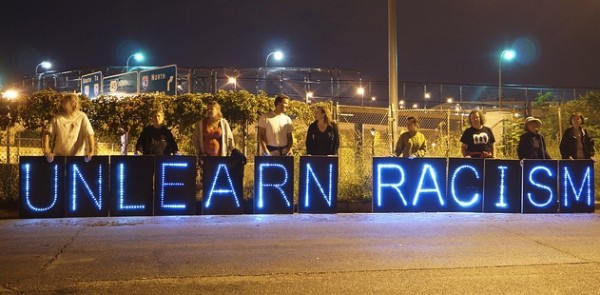
One of the challenges the world faces as a whole is racism. No matter how we look at it from our bias spectacles, the fact of the matter is that racism existed and still exists today.
Notwithstanding on the effort of racism deniers who have tried to tell us that racism does not exist, we still see it manifesting, especially in Europe and North America. For example, a video emerged recently in which white soccer fans in Paris prevented a black man from boarding a train. The white guys who did this said, “We’re racist, and that’s the way we like it.”
Whoa. These @ChelseaFC fans are disgusting. Chanting racist stuff at a black fan & not allowing him to board a train http://t.co/ynCHoHnac7
— Shaun King (@ShaunKing) February 18, 2015
There is no way we should keep silent about this topic. It is said that denying the shameful facts of discrimination, past or present, make it easier for it to happen again and again. The Deputy Opinion Editor of the Daily Dot, Derrick Clifton, has suggested nine simple things white people can do to help fight against racism.
Chelsea fans. Save your spite for those on the train, I’m sure you’ll want to see them banned from holding season tickets at your club. — Stan Collymore (@StanCollymore) February 18, 2015
1) Follow what people of color are saying and the articles they’re sharing on Twitter
Clifton suggests that white people should follow what people of color are saying and the articles they are sharing on Twitter whenever there is an allegation of racism. Issues such as a police brutality protest, a racially motivated shooting, or the latest epic racial fail from the entertainment industry are all contemporary conversations people of color discuss on Twitter. Many of these issues will not show up in mainstream media articles and white people can take the opportunity on Twitter to learn a great deal from these issues.
White supremacy isn’t theory, it’s evident. To overcome it, we need the youth to understand unfiltered white/black history. #chelsearacists
— . (@lex_looper) February 18, 2015
2) If you’re confused by what certain terms mean, try Googling before tapping someone for info
Clifton says if white people are confused about the meaning of certain terms regarding racism, they should first Google it before asking someone. For example, words such as “microaggressions” or “intersectionality” mean immediately. Some concepts are still largely academic and haven’t reached high levels of mainstream recognition. As with any other word or idea that may be new to an individual, Clifton suggests white people should research what it means and its context in a conversation about racism. He argues that by Googling articles, blog posts, videos and other materials, it can quickly help to understand these terms better. 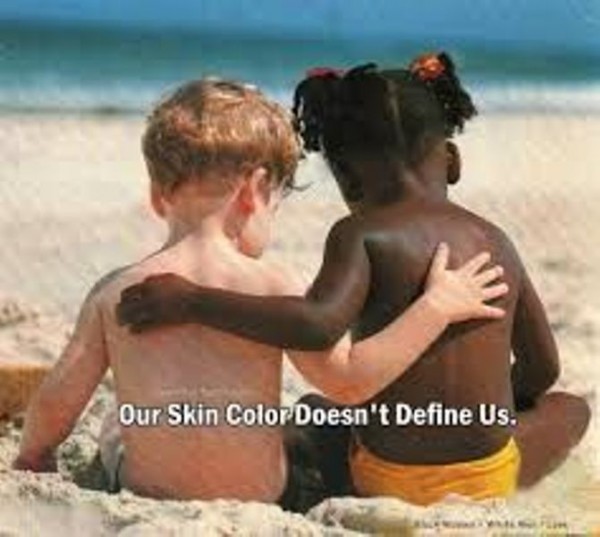
3) Spend time elevating the experiences of people of color on a trending hashtag or topic about racism
White people can also spend time elevating the experiences of people of color on a trending hashtag. Clifton admits that while it is easy for us to be biased in the discussion of important issues, nevertheless, white people can listen and help elevate these issues when people of color are openly airing their grievances or offering their analysis of an event with racial implications. This is important because they have direct experience from the issue. He cites an example wherein after a Staten Island grand jury voted not to indict the white officer who killed Eric Garner, the hashtag #CrimingWhileWhite emerged as a well-intentioned response from white people who understood that they’re treated differently by law enforcement. As that happened, black people and other people of color also shared their pain. Eventually, #AliveWhileBlack was created to redirect the conversation back to the experiences of black people who had been racially profiled or endured mistreatment at the hands of police.
17 y/o – Drove to Kroger to get mom Nyquil. Pulled over unexplained. Asked why I was in my neighborhood. 4 backup cop cars. #AliveWhileBlack — Akilah Hughes (@AkilahObviously) December 4, 2014
4) Recognize when it may not be best to insert yourself into a tense online dialogue primarily involving people of color. Sometimes, it’s better to just listen and ask questions.
White people identifying when it may not be best to insert themselves into a tense online dialogue primarily involving people of color. Clifton states that it is better to just listen and ask questions in such occasions. He gives an example such as the use of the “N-word” which is more about community dynamics that don’t need any outside input. He further cites an example in 2014 when Piers Morgan decided to devote an entire op-ed to the topic. As a white man, Morgan felt he could tell black people how to feel about a word that he’ll never be subjected to, either in the form of a slur, a pejorative, or a reappropriated term of endearment. And he didn’t back down from lecturing black people on Twitter when called on it. Therefore, during a moment like this, when it is clear that the affected community has an issue to sort out on their own terms, taking a back seat to the discussion is a much more respectful approach.
5) Be OK with making mistakes sometimes. But be open, honest, and accountable about those mishaps—it’s part of the learning process.
Clifton urges white people to admit making mistakes sometimes and be open, honest and accountable about those mishaps as it is part of the learning process. He argues that we all sometimes exercise poor judgment or mess up without knowing any better. But when that involves an issue as complicated and tense as racism, the best response to these errors is to be polite and admit the mistake committed, apologizing and committing to listening and educating ourselves. This builds a healthy relationship with people of color.
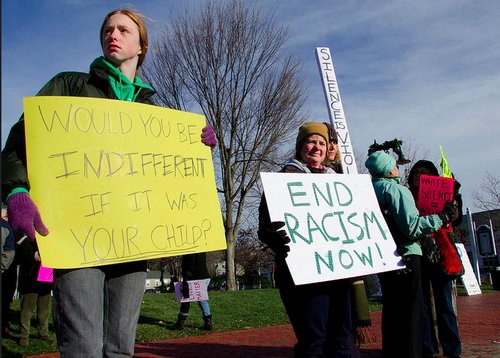
6) Avoid using the Dr. King and Obama defenses at all costs when encountering a challenging viewpoint about racism
He urges white people to avoid using the Dr. King and Obama defenses at all costs when encountering a challenging viewpoint about racism. White people are quick to make statements such as:
“You’re judging me because of my white skin and not the content of my character. Dr. King would be ashamed of you.”
“We have an African-American man who’s the president of the United States. What could black people still possibly be complaining about?”
But according to Clifton, many black people online have heard variations of either sentiment when they share a viewpoint or an article that advances a strong challenge on an issue of how racism affects everyday life, especially on matters of culture and politics. And because someone said the words “white privilege,” “cultural appropriation,” or offered any number of critiques that call out the subjugation of blacks and other people of color, it doesn’t mean that the person harbors any distinct prejudice against white people. He advocates that white people should take a moment to actually think about what’s being said and try to understand the pain being expressed by someone whose experiences may vastly differ. Having a black president clearly hasn’t eradicated racism or ushered in a so-called post-racial era, and although Dr. King’s words exist in their own time and context, he wasn’t particularly shy about calling out racism and white supremacy for the ills these systems created.
7) That also goes for any claim that “reverse racism” exists
White people should try as much as possible to avoid the “reverse racism” question. Clifton says anyone can harbor prejudice but racism is not simply about one person’s attitude toward an entire group of people. Racism is about systems in politics, the economy, media, society and other vital areas of life where one group wields enormous power and privilege over other racial groups, who end up marginalized in the process. So when a person of color discusses an instance of racism, questions such as, “How would you react if this were a white person instead?” are often misplaced.
@StanCollymore and if a white man was pushed off the train would you be up in arms Stan no you wouldn’t #doublestandards
— Numero Uno (@mikeychristou) February 18, 2015
8) Use online resources to read texts crucial to understanding issues of race and racism
Also, white people should endeavor to use online resources to read texts crucial to understanding issues of race and racism. Clifton preaches that many books and essays are available online for further reading. Either in college or having a library membership with access to online journals and eBooks, white people can take full advantage of the ability to educate themselves with an interesting book that explores issues of racism.
9) Share what you’re learning with others via your social networks
Lastly, white people should try and share what they have learned with others via your social networks. Clifton urges white people to share interesting article along with quotes they find most resonant or compelling on Facebook, Twitter and other social media platforms. He finally urges everybody not to be afraid talking about racism as it is the only way we can collectively defeat that “evil” as a society.
You want to support Anonymous Independent & Investigative News? Please, follow us on Twitter: Follow @AnonymousNewsHQ
This Article (See The Nine Easy Things White People Can Do Online To Help Fight Against Racism) is free and open source. You have permission to republish this article under a Creative Commons license with attribution to the author and AnonHQ.com.


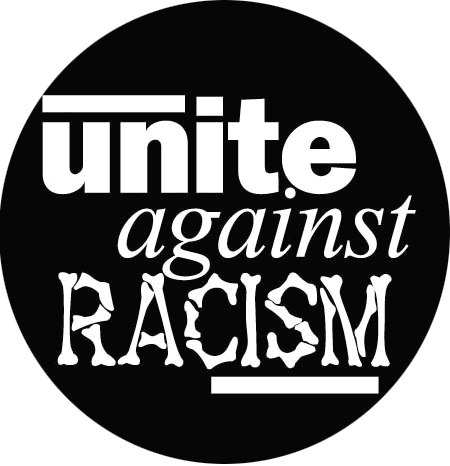
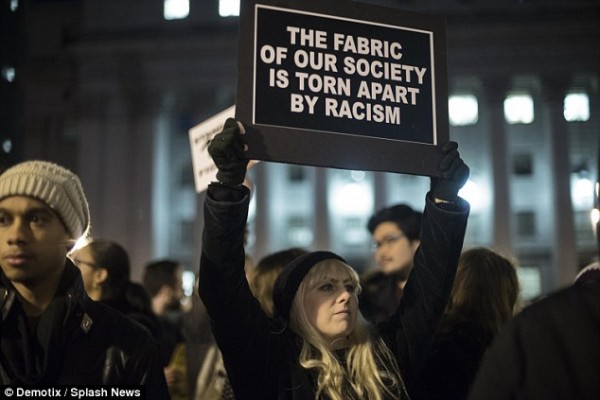
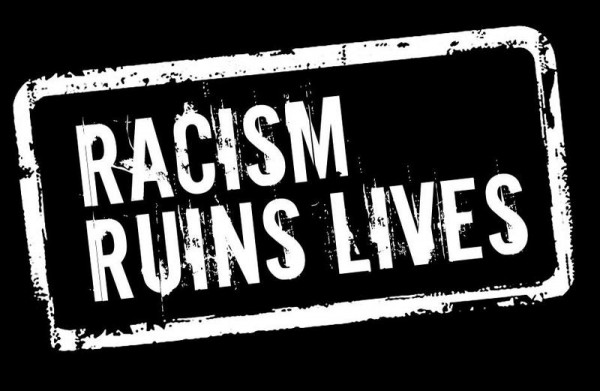



Are you kidding? Whites are NOT the only people who can be racist, it embeds itself in every race. This whole article reeks of racism as it only focuses on ONE group as being racist, where there is a HUGE rise of black racist roaming the streets of this nation, killing whites indiscriminately. This website is becoming less and less for ALL people and more and more racist and anti-Semitic everyday.
Wow. You are wrong. If People have problems with whites, it is because the White man has used them as slaves or invading their country. When the white man have a problem with colored people, it is because of race. And power. That is totally different.
Well that makes it OK then!!! Wait until you’ve been prejudiced and threatened just because you’re white! I know the ideal place for you to live Zimbabwe!
Slavery has been a plight on humanity since our beginning. It did NOT start with White people but since civilization began, according to anthropologists in Africa! Africans were capturing and selling other African tribes long BEFORE whites came to Africa and the Arabs were selling Africans to China long before Whites were. Get educated.
Targeting white people for not understanding racism is racist.
Help me to understand racism better if I try to walk down the streets peacefully in Compton, Oakland, Harlem, or any other racially dominated neighborhood. Tell me I won’t get mugged, beaten, stabbed, shot or killed. Tell me more about how googling “microaggression” and “intersectionallity” will help me have a better outcome. Explain to me how this is going to help reform people of all races in prison (or for that matter anywhere else) to not be racist. I read an interview with Morgan Freeman once, he suggested everyone just stop talking about it, that the problem would go away then. But people won’t do that. Burying your head in the sand doesn’t fix anything.
Learn to write your own copy.
Flavio: For example, words such as “microaggressions” or “intersectionality” mean immediately. Some concepts are still largely academic and haven’t reached high levels of mainstream recognition. As with any other word or idea that may be new to an individual, Clifton suggests white people should research what it means and its context in a conversation about racism.
Clifton: Not everyone is going to know what words such as “microaggressions” or “intersectionality” mean immediately, as some concepts are still largely academic and haven’t reached high levels of mainstream recognition just yet. As with any other word or idea that may be new for an individual, pause to research what it means and its context in a conversation about racism.
There is no such thing as race or color my best friend has a darker tone skin than me so what
More often than not I find him standing up to racism against white people
Honestly it’s such a human trait racism
what I find funny is all this racism talk yet no body bats an eye lid over the class system in India
Exactly
Thank you for showing the perfect racism in giving hints for only one “guilty” race… the white ones. Still wondering how self-righteous people can be.
Way to make it seem like only whites are racist… I get this article can be taken as a helpful tip towards speaking with others who feel racism is against them from whites, and if you are white, this is a good guide. But you failed to even mention that fact. I understand anyone can write an article and it be shared. But I’m pretty sure the one who wrote this is too closed minded to be allowed to write any further articles.
WOW! what a fucking load of bullshit this article is. Obviously this anonymous fool has never been to London. Also RACISM is not between balck and whites you simple minded fucking ignorant fools! Also America is Not earth, this is th world wide web you are on so try to update yourself into the future… I can’t believe you are trying to get people to follow you when you talk so much bullshit! Anonymous, you are slipping fast…..